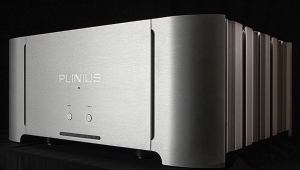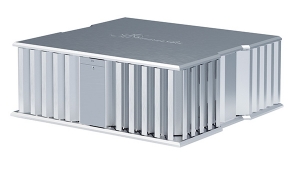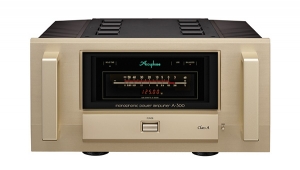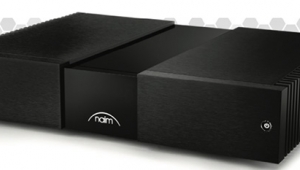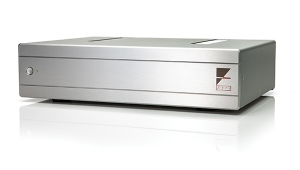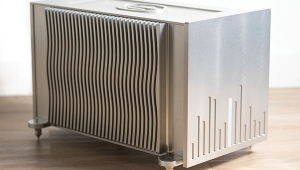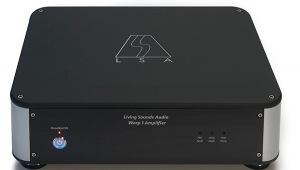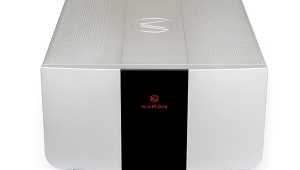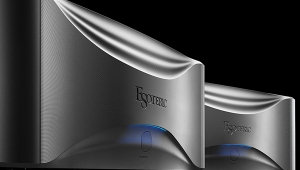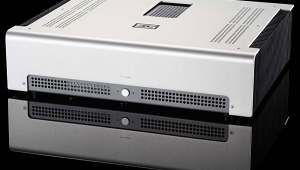| Columns Retired Columns & Blogs |
PS Audio 200C power amplifier
Several issues back, I mentioned a major "new wave" of power amplifiers coming along: the Adcom 555, the New York Audio Labs transistor-tube hybrids, and the latest Krells, for example. They demonstrate that major audible improvements are still possible in something as well-explored as the power amplifier. Not only that, some of these products demonstrate that superior performance can be combined with relatively low price.
Footnote 1: I'll say. I agree that the PS is a superior amplifier, and so does JGH, but I suspect there's some of the overenthusiasm here that one experiences at first contact with an exciting product.—Larry Archibald
The PS Audio 200C is scarcely cheap at $1649, but I will issue the following challenge: go to your dealer's and listen. Ignore the mystique and hype surrounding more expensive power amplifiers, and compare the 200C to any amplifier, tube or transistor, at any price in terms of overall performance. I have not heard a better transistor amplifier at any price, and that includes most of the big name amplifiers costing at least twice as much as the PS 200C.
I have heard amplifiers that provide a different mix of sonic advantages; you may well prefer and pay far more for them than you would for the PS Audio 200C. Tailoring a system to your personal taste and listening conditions can get to be an extraordinarily expensive proposition, and some sound characteristics depend on technologies and parts that don't come cheap. I will argue, however, that the superior features available in the best rival amplifiers all involve significant trade-offs relative to the 200C. You only get their advantages by giving up some of merits available from the 200C.
The Merits
This is strong praise (footnote 1), and I will temper it with comparisons to other top-line products in a moment. There are also other new amplifiers coming: the Audio Research D-250 II "Servo," Counterpoint SA-4 OTL, Mark Levinson No.20, and NYAL OTL-3 Mark 2.5—none of which I've heard, though the Counterpoint is on hand. I don't push the 200C as the "ultimate;" it's worth buying because it sounds superb today, not because it will "outrank" all of tomorrow's competition.
Nevertheless, the PS Audio 200C has the following merits (footnote 2):
• Almost total freedom from transistor hardness or zing in the upper four octaves. The 200C rivals the best tube amplifiers in the smoothness and musical liquidity of its upper octave performance, but is flatter and more extended than most. Other top-price transistor amplifiers may appear to have more highs and "life," but all the ones I've heard provide this life at the expense of low-level treble detail, and with more upper octave energy than you'll ever hear from live music.
• Superb bass power and control, with dynamic rather than tight or reticent bass, but no trace of loose or overfull bass response. This power seems to help even the most bass-limited full-range speaker, and, on those few speakers possessing true low bass, can reproduce the lowest octaves with real sonic glory.
• Midrange performance typical of only the best tube amps from Conrad Johnson and Audio Research. The timbre is flat from the upper bass to lower treble. There is no trace of the lower midrange "suckout" characteristic of transistor amplifiers. This midrange performance is dynamic, detailed, and transparent from the softest to loudest passages. The transistor tendency to soften transients and musical life in the lower and middle midrange, and exaggerate them in the upper midrange, is not present.
• No transistor "tunnel" effect. The soundstage width and height rival that of the Conrad Johnson Premier Five and Audio Research D-250 II. Depth is excellent, though precision of location within that depth is slightly lacking. Placement of voices and instruments across the stage rivals the best tube amps, but fails to equal the "holography" available from the D-250 II.
• There is remarkable transparency. The 200C provides the illusion of sitting in an actual hall, conveyed by low-level detail, soft harmonics, and musician noises. Only the best Audio Research, Conrad Johnson, Krell, NYAL, and Counterpoint designs can equal the PS-200C in this respect. Since each amplifier reveals some information of this kind the others do not, I cannot say which one is "right." I can say that the 200C equals the state of the art in this respect.
• Compatibility: I have not met a preamp or speaker that this amplifier does not like. It is the first transistor amplifier to sound good on the Infinity RS-1B; it can drive any Apogee; and it handles difficult speaker and crossover loads. Other amplifiers may, and certainly will, sound better in given combinations, but the overall compatibility of the 200C is an embarrassing indictment of the vast majority of amplifiers—at any price.
Footnote 1: I'll say. I agree that the PS is a superior amplifier, and so does JGH, but I suspect there's some of the overenthusiasm here that one experiences at first contact with an exciting product.—Larry Archibald
Footnote 2: Like all PS Audio products, the 200C had some early teething problems. If you have a lower serial number than mine, you should have been contacted; if you haven't been, call PS to see if any adjustment to your amp is needed.—AHC
- Log in or register to post comments




